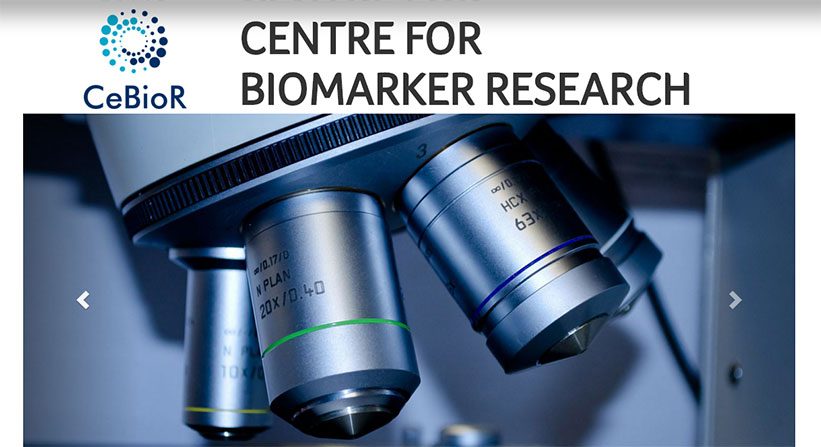£1m research centre to create new drugs for the health services

Fri, 15 Apr 2016 11:29:00 BST
 Matched funding enables the University of Huddersfield to create the Centre for Biomarker Research
Matched funding enables the University of Huddersfield to create the Centre for Biomarker Research
SPEEDIER, less costly development of new drugs for conditions such as dementia, psychiatric disorders, cancer, cardiovascular disease and chronic pain is one of the goals of a new £1 million research centre at the University of Huddersfield. By investigating the biological processes, or biomarkers that indicate the presence of disease, it is also hoped to bring about major improvements in diagnosis and treatment.
 The director and originator of the new Centre for Biomarker Research (CeBioR) is Dr Patrick McHugh (pictured), who has secured backing of £500,000 from a UK-based investment company. This funding has been matched by the University of Huddersfield itself, and the centre now embarks on a five-year programme of research.
The director and originator of the new Centre for Biomarker Research (CeBioR) is Dr Patrick McHugh (pictured), who has secured backing of £500,000 from a UK-based investment company. This funding has been matched by the University of Huddersfield itself, and the centre now embarks on a five-year programme of research.
“The Centre will be at the forefront of health or medical-related research within the University and beyond. It brings together academics and researchers in areas of biomarker discovery, identifying new ways to improve diagnosis and treatment,” pledges Dr McHugh, whose speciality is in chronic pain, neuro-degeneration and psychiatric disorders.
Biomarkers can be taken from any tissue, but blood is the simplest and less invasive source and one CeBioR objective is develop a new blood test that provides a quick and highly-informative diagnosis for a range of diseases.
“In the past, people would assume that a blood test couldn’t give you enough information about disease of the brain, for example,” said Dr McHugh. “But we now know that inflammation of the body can lead to brain diseases, therefore we can detect them more readily.”
Another dimension of the new centre’s research is that biomarkers can be used to make drug development more efficient. Colossal sums of money are currently wasted during pre-clinical and clinical trials because it transpires that experimental drugs do not match biological systems in animals. As a result, 99 per cent of drugs do not progress from toxicological tests in animals to the human testing phase.
But by identifying beforehand the disease biomarkers that are common to humans and animals, the new research centre could ensure that drug testing is more efficient and economic, with reductions in the necessity for animal experimentation.
 “Because we don’t have an animal facility here at the University we are developing advanced in vitro systems for modelling disease including stems cells and 3D cultures,” said Dr McHugh. “They will allow us to eliminate in advance a lot of the drugs that you would have to test on animals. This will greatly reduce the need to sacrifice animals during the pre-clinical stages of drug development.”
“Because we don’t have an animal facility here at the University we are developing advanced in vitro systems for modelling disease including stems cells and 3D cultures,” said Dr McHugh. “They will allow us to eliminate in advance a lot of the drugs that you would have to test on animals. This will greatly reduce the need to sacrifice animals during the pre-clinical stages of drug development.”
The Centre encompasses a multi-disciplinary team of more than 50 research staff and students. They include biomedical scientists, clinical and health researchers, pharmacologists, geneticists, biochemists, forensic scientists, analytical and medicinal chemists and mathematicians. There will also be opportunities for PhD students and post-doctoral researchers.
The company that has invested £500,000 in the CeBioR is Yes Tequila – a recruitment firm that also has a socially-responsible investment arm. Dr McHugh encountered the company and secured the investment when he attended a conference in the USA.
The new centre also has collaborations with the NHS’s National Institute of Health Research plus the Northern Pain Alliance, which has partners from a number of leading Northern universities. There is also an important link with the drug discovery platform European Lead Factory. The Centre is leading an EU-wide project in collaboration with academic and industrial partners entitled Developing novel targets for the treatment of depression, which has recently been accepted to the European Lead Factory programme.







